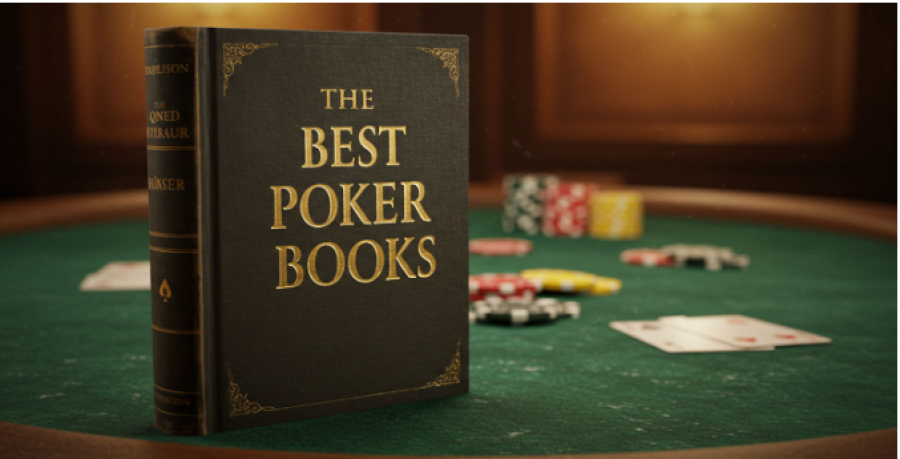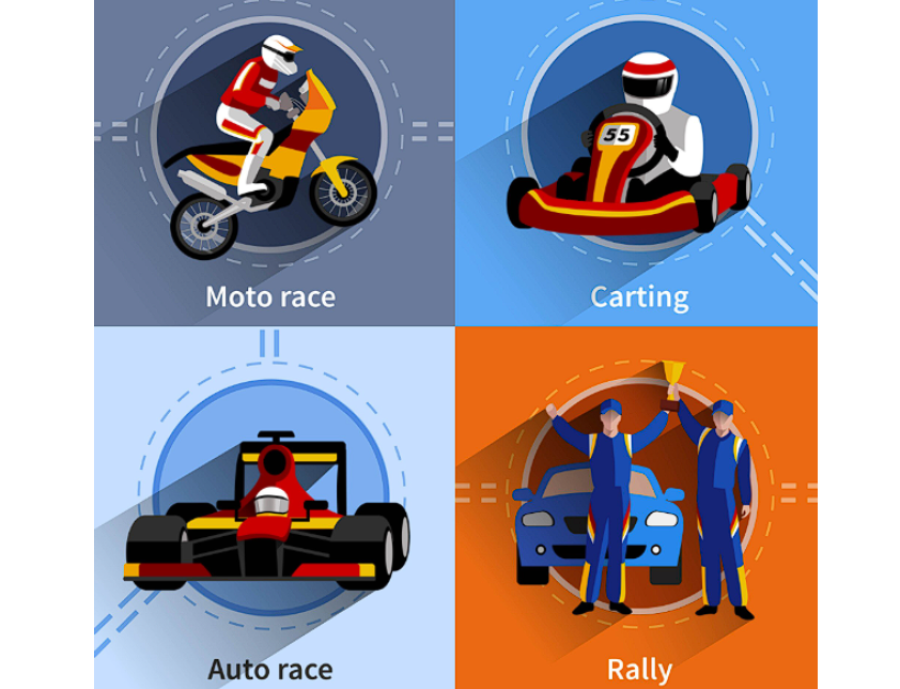For millions of Americans, poker is not just a game. It has become a way of life, a way of thinking, and even a profession. With the development of the internet and online games, many users are developing their skills through video tutorials, streams, and interactive tools that are now available on many projects. However, despite new innovative formats, the best poker books remain one of the most reliable and fundamental sources of knowledge about the strategies and features of this game.
Unlike short clips or training videos, a book allows you to delve deeper into the strategy, understand the author's logic, and build a long-term approach. Poker literature covers not only the basics of the game, but also mathematical models, psychology, bankroll management, and even philosophy at the table.
The best authors—professionals with years of experience—share their thoughts and strategies in a format that has stood the test of time. It's no coincidence that many players who have become tournament champions started out by reading books. That's why poker books remain relevant even in the age of YouTube and Twitch.
Why Poker Books Still Matter in the Digital Era
In today's world, where learning is more often associated with videos and online courses, poker strategy books may seem like an outdated format. However, they are what help to form a deep understanding of the game.
The key aspects discussed in contemporary literature include the following elements of gameplay:
The foundation of strategy – classic poker literature lays the groundwork for knowledge, consistently explaining concepts and forming a basis that can be relied upon in any situation at the table;
Depth of analysis – unlike videos, books allow authors to explain each decision in detail, provide mathematical calculations, and show various game scenarios;
Psychology and thinking – many of the best poker books help develop not only technical skills, but also the ability to think strategically in the long run.
Reading professional literature is especially important for those who play tournaments and need to stay focused for hours. Books also help anyone who takes poker more seriously than just entertainment to develop their skills.
Essential Poker Books for Beginners
The first steps in poker can seem daunting. The huge number of terms, rules, and strategies can make beginners feel lost. This is where poker books for beginners become the basis for beginners who want to apply what they’re learning, exploring poker games online can help reinforce core concepts in a low-pressure environment, especially when comparing how different formats work. Resources like strategy breakdowns and game comparisons can also give new players a clearer sense of how poker stacks up against other card games..
Winning Low-Limit Holdem by Lee Jones
Jones explains the basics of low-limit play, where most beginners start their journey. The author discusses starting hands, common mistakes, and basic strategy in detail, which will be useful for all beginners.
Poker For Dummies by Richard Harroch and Lou Krieger
This book from the famous series aimed at beginners covers all the basic rules and concepts. It is ideal for those who are sitting down at a poker table for the first time. Simple explanations, humor, and practical advice make it indispensable for beginners.
The books do not overload you with complex mathematics, but give you confidence in simple decisions. Thanks to this, beginners gradually enter the world of poker, learn to avoid mistakes, and develop discipline.
Advanced Poker Books for Serious Players
Once you have mastered the basic skills, it's time to move on to more serious concepts. Here, mathematics, probability theory, and tournament strategies become important. Let's take a look at some advanced poker books that will help you develop your playing skills.
Harrington on Holdem by Dan Harrington
One of the most respected series of Texas Hold'em strategy books. Harrington explains in detail how to think at different stages of a tournament, from early to final. The author's books have helped an entire generation reach a new level.
No Limit Holdem: Theory and Practice by David Sklansky and Ed Miller
This work is considered one of the fundamental works. In the format of poker psychology guides, Sklansky and Miller analyze the game from the point of view of game theory, consider hand ranges, and explain the concept of expected value.
The books are suitable for players who are no longer satisfied with amateur play. They require patience and analytical thinking, but the reward is the ability to compete with the strongest opponents.
Mindset and Psychology Reads
The technical side of the game is important, but often it is the mental game of poker that determines the outcome of a hand. How do you deal with tilt? How do you stay focused after a series of failures? How do you not give in to your emotions? The best books on poker psychology provide answers to these questions.
The Mental Game of Poker by Jared Tendler
One of the most popular books on poker psychology. Tendler analyzes the causes of tilt, provides concentration exercises, and explains how to keep your cool in the most stressful situations.
Elements of Poker by Tommy Angelo
With humor and deep analysis, the author talks about how poker affects personality, how habits at the table carry over into everyday life, and why self-control is more important than luck.
Many poker enthusiasts know the strategy but lose because of their emotions. Books on psychology help develop poker thinking and maintain concentration over the long term.
How to Choose the Best Poker Books for Your Style
In order for a book to be useful in addition to developing your skills on poker training resources, it is important to choose one that suits your level and style of play:
Beginners will benefit from simple publications with lots of examples and few formulas.
Experienced players are better off choosing books that explain the concepts of expected value, hand ranges, and probability theory;
Cash game enthusiasts should study works focused on long-term strategy and bankroll management;
Tournament players need books on tournament stages, ICM (independent chip model), and final tables.
Some books teach mathematics, others teach psychology, and still others teach practical skills. The best approach is to combine their strengths by creating your own "poker library" that covers all aspects of the game.
Top 5 Best-Selling Poker Books of All Time (With Key Takeaways)
Here are the top hits that will teach you everything you need to know about poker tournament strategy and the psychology of the game.
Super System
This book was written by Doyle Brunson, a poker legend. Its idea is to reveal fundamental strategies for different formats. Therefore, it is a universal book for all levels.
The Theory of Poker
The book was written by David Sklansky. It reveals the basics of the mathematical approach and is suitable for poker enthusiasts who want to systematize their knowledge.
Harrington on Holdem
It was written by practicing poker player and WSOP champion Dan Harrington, who describes a number of winning strategies for tournament participants.
The Mental Game of Poker
Author Jared Tendler focuses on psychology and discusses in detail how to combat tilt. The book is suitable for all poker enthusiasts who want to develop self-control.
Every Hand Revealed
Author Gus Hansen offers an unusual format for presenting information. The main idea is a real analysis of hands played at the Aussie Millions tournament. The book is suitable for those who want to see the thinking of a professional from the inside.
Tips on Learning From Poker Books Effectively
Many poker enthusiasts read books, but not everyone knows how to apply the knowledge correctly. For a competent approach:
Read actively—take notes, highlight key concepts;
Practice – after each chapter, try to use new ideas in online games or home tournaments;
Analyze your hands – compare your own actions with the authors' advice.
Remember that books are a foundation, but they should be supplemented with videos, training, and statistical analysis.
Conclusion – Building Your Poker Library
Poker books are a distillation of the experience of professionals, their mistakes, victories, and insights. They shape strategic thinking, teach discipline, and help develop psychological resilience.
That is why every library should include the best publications: from basic guides for beginners to complex works on mathematics and psychology. In a world where information is often superficial and fragmented, books remain a mainstay and a source of systematic knowledge.
Building your own collection is an investment in growth within the industry. By reading the best poker books, applying their advice in practice, and combining it with online gaming experience, you can turn your hobby into a serious skill.









